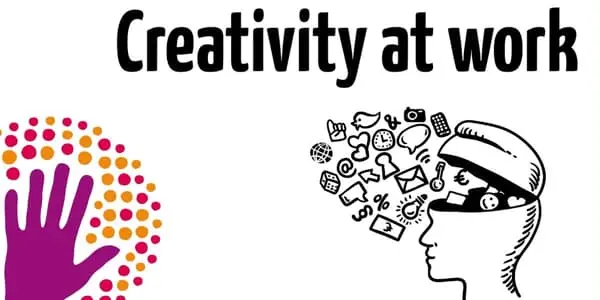According to a new study, even though most businesses today have a culture of criticism when supervisors and peers provide negative feedback, it can actually stifle the creative process.
Managers, be more mindful of your employees’ feelings when providing negative feedback the next time you need to inspire your team creatively. According to a new study co-authored by Yeun Joon Kim, a Ph.D. student at the University of Toronto’s Rotman School of Management, when supervisors and peers provide negative feedback, it can actually stifle the creative process.
Kim, who previously worked as a software engineer for Samsung before pursuing his graduate studies, is used to having his creative work scrutinized – and, at times, picked apart. His previous professional experience sparked the idea for his most recent paper, which is currently in press with the Academy of Management Journal.
The most difficult aspect of being a manager is pointing out a subordinate’s poor performance or weak points. However, it is a necessary part of the job. If you’re a manager, keep in mind that giving negative feedback can hurt your employees’ creativity. Negative feedback is often taken personally by followers. As a result, keep your feedback task-specific.
Yeun Joon Kim
“I personally dislike hearing negative feedback – as do most people – and I wondered if it really improved my performance, particularly when it came to completing creative tasks,” says Kim, who will start as an assistant professor at Cambridge Judge Business School in May.
Many other researchers are interested in this topic as well. When it comes to determining whether criticism inspires or inhibits creative thinking, the literature is mixed. In this new study, Kim and his co-author Junha Kim, a PhD student at Ohio State University, observed and reported on how receiving negative feedback may affect the creativity of feedback recipients using a field experiment and a lab experiment.
Kim discovered that negative feedback can either help or hinder creativity in both studies. What matters most is where the criticism is coming from. When creative professionals or participants received negative feedback from a boss or a peer, they were less creative in their subsequent work. Surprisingly, when an individual received negative feedback from lower-ranking employees, they became more creative.

According to Kim, some aspects of these findings appear intuitive. “It’s understandable that employees might feel threatened by criticism from their managers,” Kim says. “Supervisors have a lot of say when it comes to promotions and pay raises. As a result, negative feedback from a boss may cause career anxiety.”
It also stands to reason that feedback from a co-worker might also be received as threatening. We often compete with our peers for the same promotions and opportunities.
When we feel pressure from above or from our peers, we tend to focus on the stressful aspects of it, which causes us to be less creative in our future work, according to Kim. What surprised Kim the most was how criticism proved to be beneficial for supervisors when it came from their followers (employees that they manage).
“It’s a little counterintuitive because we believe we shouldn’t criticize the boss,” Kim says. “In reality, most managers are eager to hear negative feedback and learn from it. It’s not that they enjoy criticism; rather, they are in a natural position of power and can handle the discomfort of negative feedback better.”
The key takeaways: bosses and coworkers must exercise greater caution when providing negative feedback to someone they manage or to their peers. And, according to Kim, feedback recipients should be less concerned about receiving criticism.
“The most difficult aspect of being a manager is pointing out a subordinate’s poor performance or weak points. However, it is a necessary part of the job “Kim says “If you’re a manager, keep in mind that giving negative feedback can hurt your employees’ creativity. Negative feedback is often taken personally by followers. As a result, keep your feedback task-specific. Explain how the point you’re making is only about their task behavior and not about other aspects of their personality.”
And, in general, be kind and attentive.
“Don’t criticize recklessly. Anyone who wants to offer negative feedback on the job should do so — discreetly and sensitively.”















